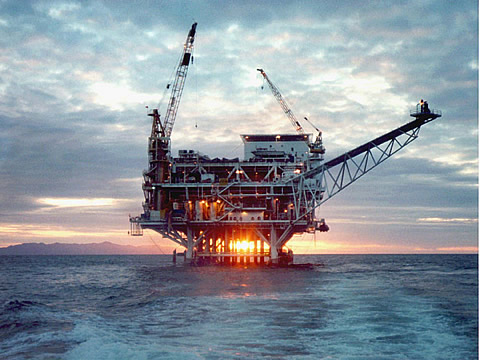
Originally published in Real Clear Energy
President Obama’s decision to withdraw large parts of the Alaska and Atlantic outer continental shelf from future oil and natural gas leasing represents a betrayal of U.S. national security interests.
The move makes large parts of Alaska’s Chukchi and Beaufort seas off limits to energy exploration and development. Taken together those areas represent more than 80 percent of the total U.S. Arctic offshore energy potential – an estimated 24 billion barrels of oil and 104 trillion cubic feet of natural gas.
On the other side of the country, the Atlantic offshore region is estimated to contain nearly 5 billion barrels of oil and 38 trillion cubic feet of natural gas.
Those resources are worth trillions of dollars to the U.S. economy. New offshore production in the Arctic would create an estimated annual average of 35,000 direct and indirect jobs in Alaska, and nearly 55,000 jobs nationwide over the next half century. Production along the Atlantic coast could add another 280,000 direct and indirect jobs to the U.S. economy.
In addition to disregarding the wishes of the people of Alaska – a state that continues to slide deeper into recession and where an overwhelming majority support offshore development – the President’s decision undermines U.S. geopolitical standing as a major energy producer and further ties its future to the oil fields of the Middle East.
Despite the growing trend toward the use of more renewable energy, the United States will continue to use fossil fuels to meet the vast majority of its energy needs for the next several decades.
Of the United States’ 1.7 billion acres of outer continental shelf, 94 percent is now off limits to oil and gas activities. In Alaska that means that 125 million acres in the Chukchi and Beaufort seas previously accessible for development has been reduced to 2.8 million acres. The President’s move leaves the Gulf of Mexico – minus the waters around Florida – and Alaska’s Cook Inlet as the only places where new offshore leasing is allowed.
President Obama withdrew the Arctic and Atlantic offshore regions through executive order using section 12(a) of the Outer Continental Shelf Lands Act. While President Obama claims his decision is permanent, President-elect Trump can and should reverse it on day one of his administration.
While the Outer Continental Shelf Lands Act permits a president to withdraw areas from consideration, it says nothing about those withdrawals being permanent. To do so would be a clear contradiction of Congress’ intent when it passed OCSLA in 1953, which was to make federal waters available for oil and gas leasing to meet the nation’s growing energy needs.
This is especially true of U.S. resources in the Arctic – which President Obama’s own National Strategy for the Arctic Region recognized as a “core component” of the national security strategy.
U.S. leadership in the Arctic is crucial to set a high bar for environmental protection and safety standards for other nations to follow. Hoping that other nations will instead act against their own economic and security interests as the current U.S. Administration has done won’t make it so.
The absence of an active U.S. energy industry in the Arctic also means that the region will be starved of badly needed infrastructure investment and continue to lack sufficient capabilities to respond to emergencies in the emerging region.
The United States’ vast offshore resources are vital to the future energy security and economic prosperity of the American people. The loss of such strategic assets will have long-lasting consequences, including endangering the United States’ newfound influence around the globe as an energy superpower.
As President Obama prepares to leave the White House at the end of his term, he appears determined to take the dream of energy security with him.
President-elect Trump can and should move swiftly to reverse those decisions of the current administration that make the United States less secure and more dependent on foreign sources for the energy needed to drive economic growth.






